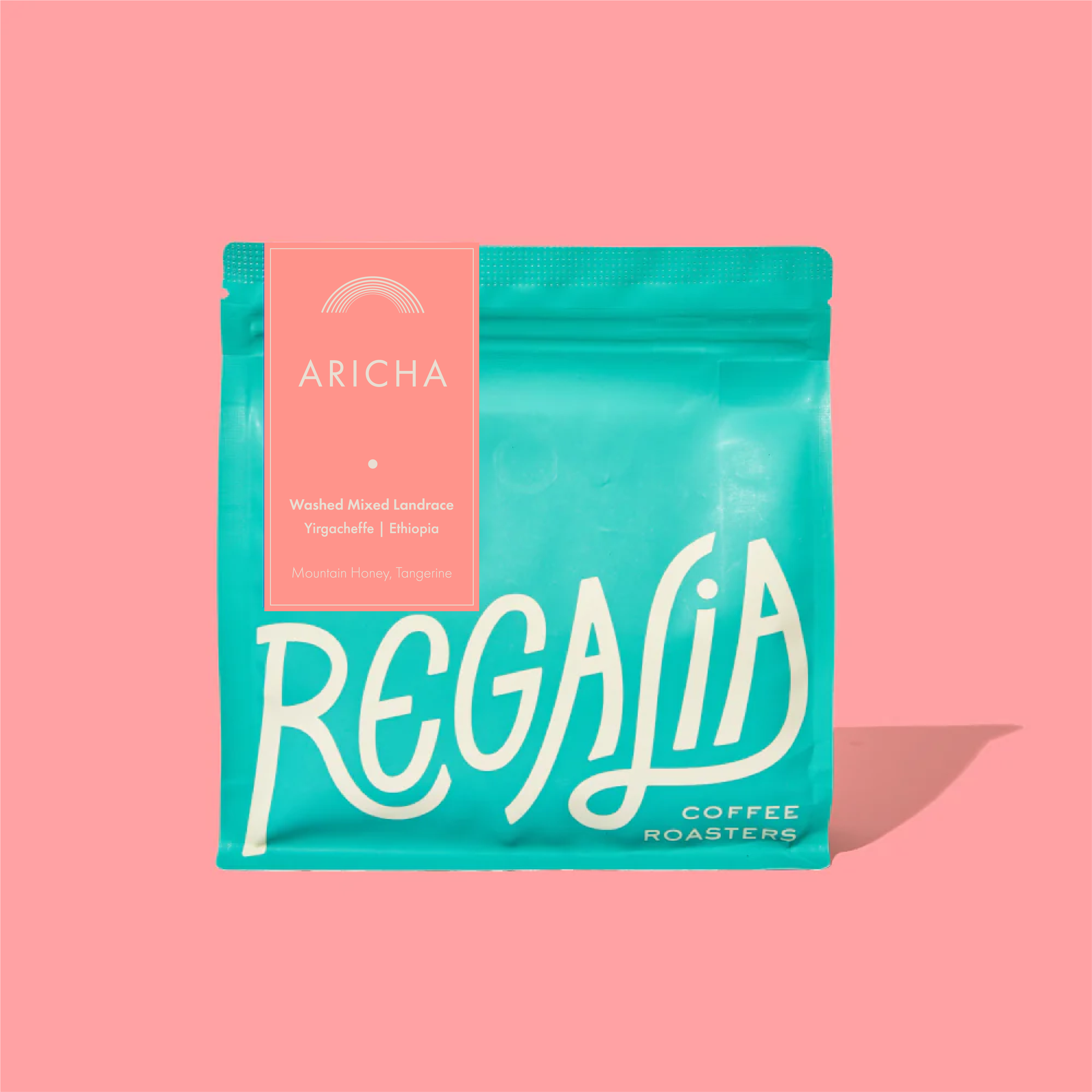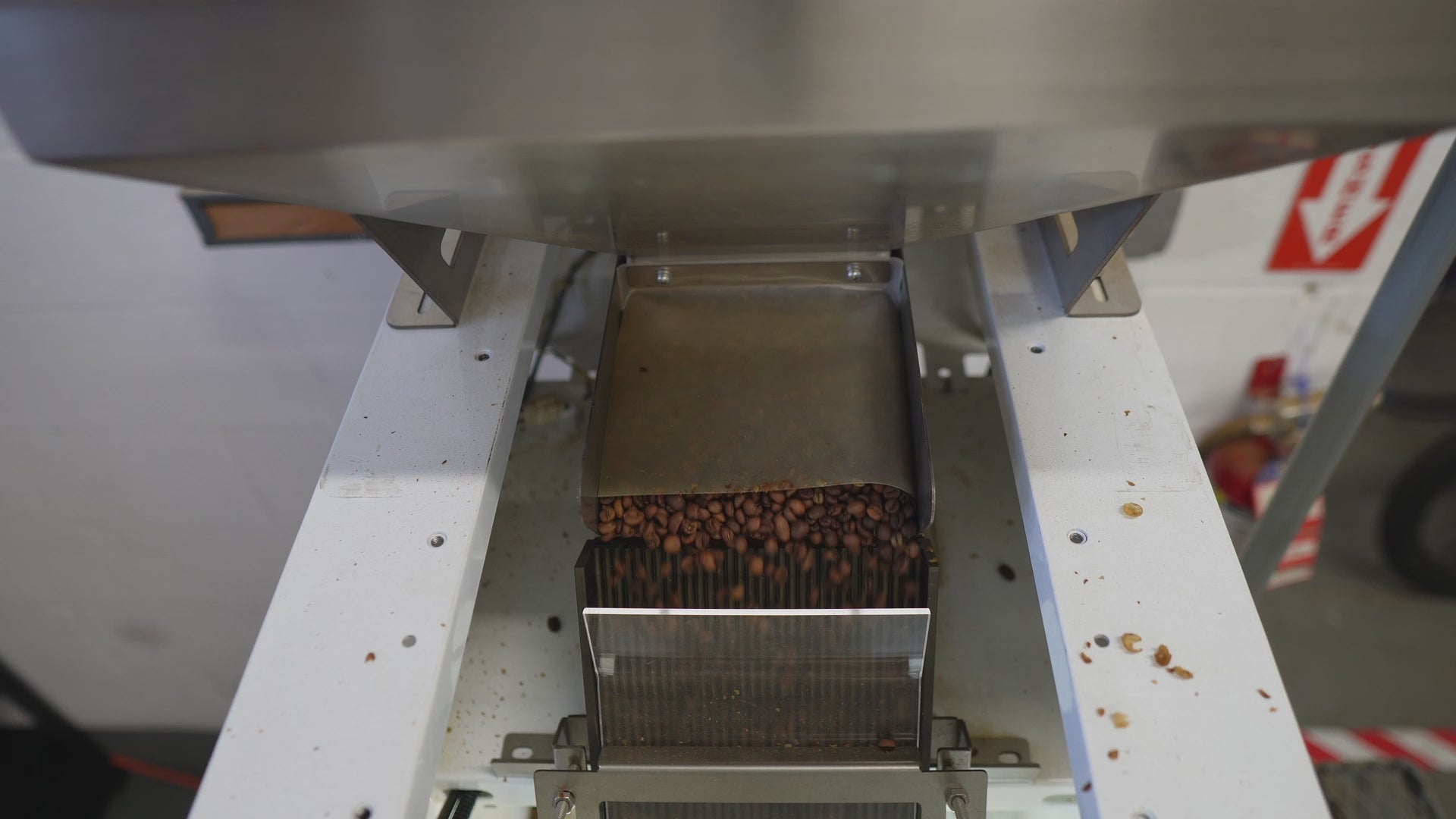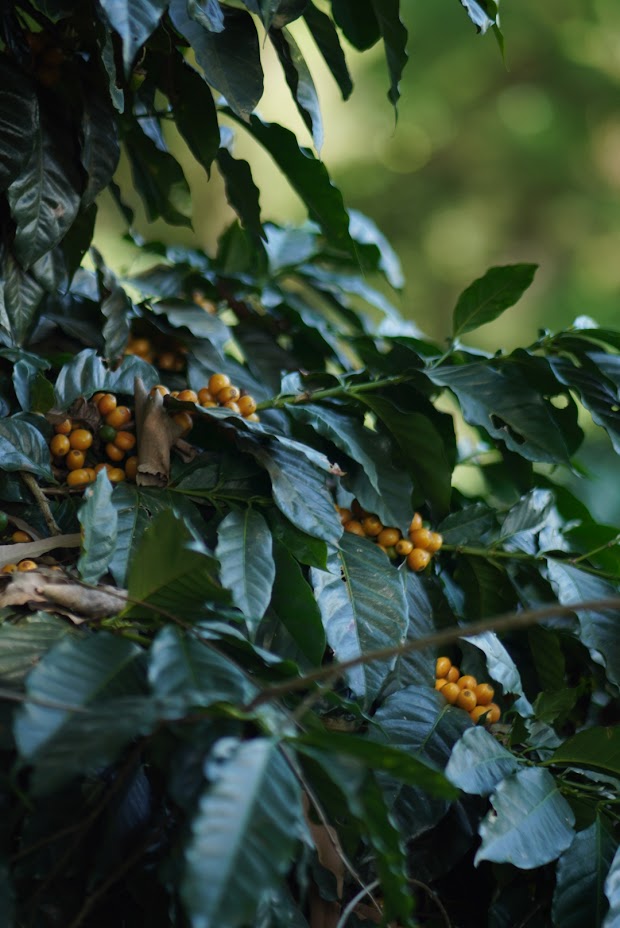
Aricha
Sold between 4/4/24 and 5/16/24.
Fresh crop Ethiopian coffee has arrived! Aricha is first in line: fresh, sparkling, and oh so clean. This coffee reminds us of mountain honey and jasmine. A testament to the arrival of Spring!
Aricha washing station is located at 1,925 meters above sea level in Yirgacheffe. Over 300 farmers deliver cherry grown in the surrounding area. The distinct wet and dry seasons create prime conditions for coffee processing, especially washed lots like this one.
Farming methods in the region remain largely traditional. Yirgacheffe farmers typically intercrop their coffee plants with other food crops. This method is common among smallholders because it maximizes land use and provides food for their families.
In addition to remaining traditionally intercropped, most farms are also organic-by-default. Farmers in Yirgacheffe typically use very few—if any—fertilizers or pesticides. Most farm work is done manually by the immediate family.
Cherry is then pulped and fermented for 36 to 48 hours in the station’s 12 standardized fermenting tanks. After fermentation, parchment is washed in clean water and transferred to some of the station’s 280 raised drying beds. Parchment is raked frequently to ensure even drying. It takes approximately 18 days for parchment to dry. The station marks all drying beds with a code that makes it simple to keep track of traceability and processing status.
All accepted cherry is then laid to dry in thin layers on raised beds for approximately 18 days. The station has 280 drying beds. Each bed is marked with a code that makes it simple to keep track of traceability and processing status.
Region Yirgacheffe, Ethiopia
Altitude 1925 MASL
Process Washed
Varietal Kurume
Choose options


Sorting Level
11-11.5%
All our roasted coffees are run through an AI-powered optical sorter. This extra step ensures that you receive only the most nutrient-dense, flavorful coffees from each lot. The machine is also capable of removing any foreign objects (corn, metals, rope, to name a few) from the rest of the coffees.
The higher the percentage, the more coffee is being removed in order to achieve a truly pristine product. We liken this to how sake-makers "polish" during production in order to reach a higher-quality product.
Nothing goes to waste: the rejected coffees are re-roasted and sold to local markets.

Variety / Cultivar
Sidra
Originally from Ecuador, the Sidra variety has come to fame for it's notable quality at top-level coffee competitions. It's reported to be a cross-breed of Red Bourbon and Typica. At it's best, Sidra coffees are noted to be naturally floral and intensely sweet.
